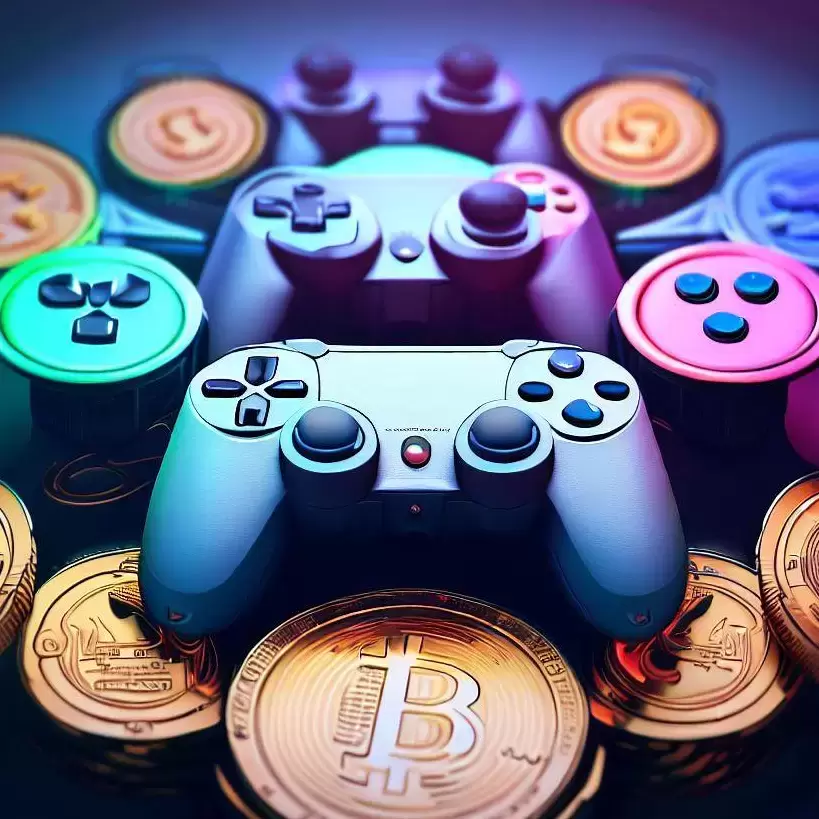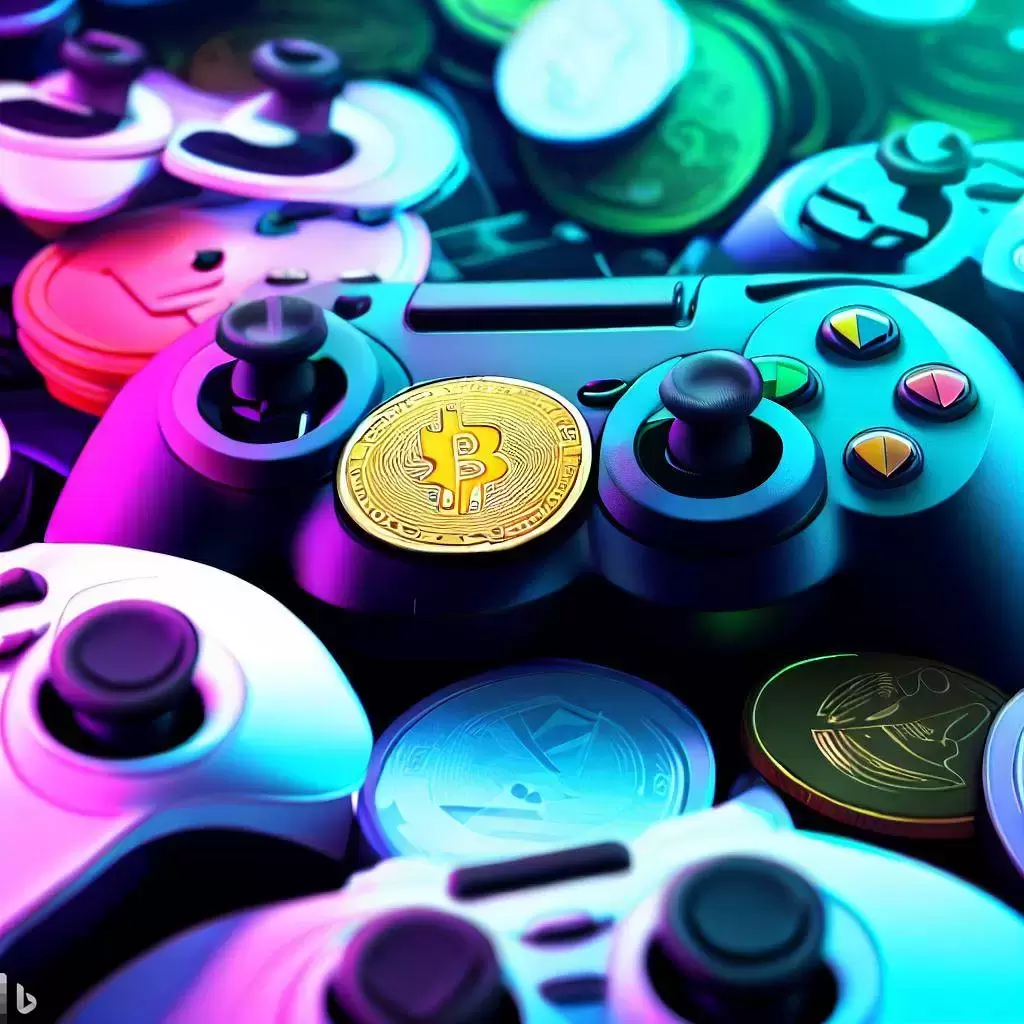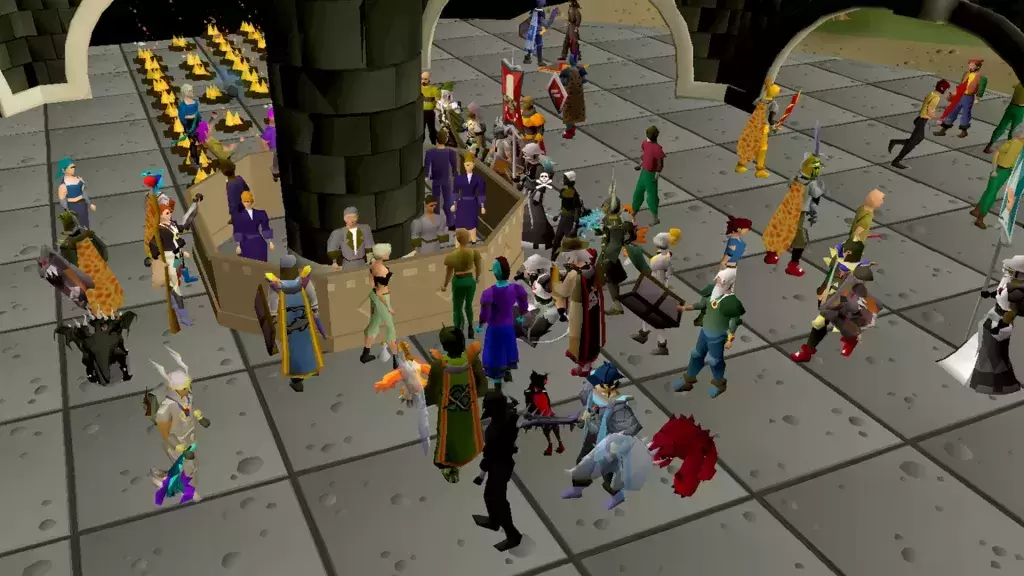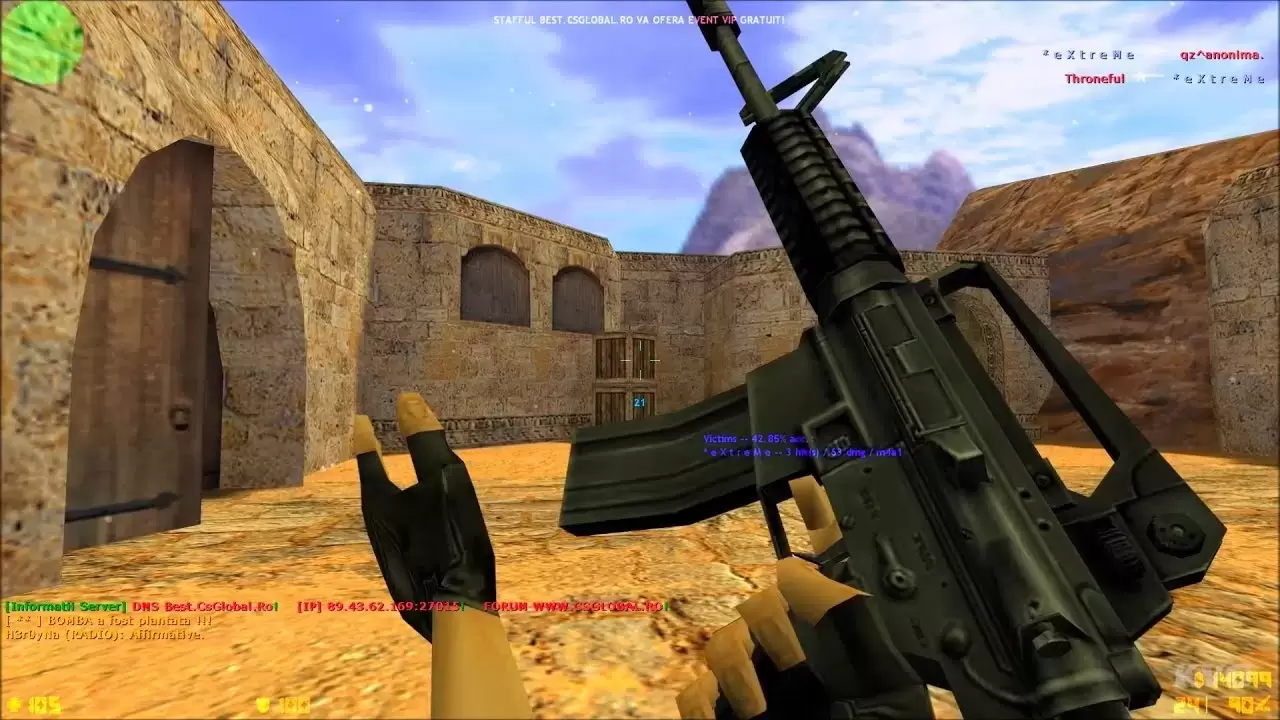From Retro to Revolutionary: How Web2 Games Are Embracing Web3 Tech
Keypoints:
- Traditional games can benefit from blockchain integration through the Play-to-Earn model, allowing players to convert their in-game items into NFTs and earn profits.
- RuneScape, Magic: The Gathering, Counter-Strike, EVE Online, and Football Manager are examples of games that could thrive with blockchain integration.
- RuneScape's player-driven economy and sandbox gameplay make it a perfect fit for the Play-to-Earn model.
5 Games That Would Be Perfect for the Play-to-Earn Model

What if RuneScape or EVE Online transformed into blockchain-based games? Would it work? Let's explore five traditional games that would be perfect for the Play-to-Earn model.
The video game industry is filled with high-quality traditional games across various genres that are enjoyed by millions of players worldwide. Most highly popular titles utilize microtransaction models that may or may not be consumer-friendly, often favoring developers and publishers. Unfortunately, players have no legal way to resell the items they acquire.
But what if these games integrated blockchain technology and gave players the option to convert their items into NFTs that they could sell to recoup their investment?

These are just a few examples of traditional games that could work well with blockchain integration. If major publishers and studios are hesitant to take the leap, smaller developers may lead the way in creating their own blockchain-based versions of these popular classics.
As Web3 continues to evolve, the integration of blockchain technology in gaming will present new opportunities for both players and developers, revolutionizing the industry and allowing players to earn real rewards for their in-game efforts.
Here are five games that could be perfect for the Play-to-Earn model if they joined the world of Web3: RuneScape, Magic: The Gathering, Counter-Strike, EVE Online, and Football Manager.

RuneScape / Old School RuneScape (RS3 / OSRS)
RuneScape, one of the oldest MMORPGs still in existence, would be a perfect fit for the Play-to-Earn model. With its sandbox-style gameplay, players have the freedom to choose different professions and master any they desire. The game's economy is entirely driven by players, making it an ideal candidate for blockchain integration. By allowing players to convert their efforts into cryptocurrencies and NFTs, they could potentially earn profits and use them to buy in-game items, contribute to governance, or withdraw them for use outside the game.
Magic: The Gathering
Magic: The Gathering, one of the most popular collectible card games, would be a great choice for a blockchain-based game. The collectible and trading aspect of the game aligns perfectly with NFTs and blockchain technology. By digitizing cards as NFTs and implementing a Play-to-Earn model, players could be rewarded for participating in battles, tournaments, or trading valuable cards within the blockchain ecosystem.

Counter-Strike
The beloved first-person shooter franchise, Counter-Strike, has already shown potential for the Play-to-Earn model with its weapon skin market in CS:GO. While Valve allows skin resale through its integrated marketplace, anything beyond that is not officially supported. By integrating blockchain technology, players could trade and own NFTs, receiving funds in their own cryptocurrency wallets. This would give them the freedom to transfer and spend earnings as they please, rather than being limited to spending within the closed Steam ecosystem.
Counter-Strike's successful weapon skin market illustrates the potential for players to profit from their in-game assets through blockchain ownership. EVE Online's complex and time-consuming gameplay could become even more rewarding if integrated with Web3, granting players true ownership of their valuable in-game ships and assets. Finally, Football Manager offers an immersive experience where players can participate in a digital season, owning NFTs that represent players, agents, and even clubs.
EVE Online
EVE Online, a sandbox space MMO known for its large-scale player-driven wars involving valuable ships, would be a perfect candidate for the Play-to-Earn model. The game's complex sci-fi world requires significant time and effort to fully experience, making it an ideal fit for Web3 integration. While there are currently no plans for blockchain integration in EVE Online, the studio behind the game has secured funding for a new AAA Web3-based game, suggesting the possibility of a crypto version of EVE Online in the future.
Football Manager
Imagine a digital season played out in numerous leagues, with coaches setting up NFT player lineups and clubs functioning as fractional NFTs. Football Manager offers a unique opportunity for a Play-to-Earn version, where users can assume multiple roles, such as coach, agent, or club owner. By utilizing a native token as a reward for winning matches and spending on player transfers, the game could provide an exciting and immersive experience for players.
The examples of RuneScape, Magic: The Gathering, Counter-Strike, EVE Online, and Football Manager demonstrate the versatility of the Play-to-Earn model in various gaming genres. The MMORPG RuneScape, with its player-driven economy, is a natural fit for blockchain integration, as players could earn cryptocurrency for their in-game activities. Magic: The Gathering's collectible card aspect aligns seamlessly with NFTs, allowing players to be rewarded for their participation and trading within the blockchain ecosystem.
The concept of transforming traditional Web2 games into blockchain-based Web3 games holds tremendous potential to revolutionize the gaming industry. The idea of adopting the Play-to-Earn model and integrating blockchain technology opens up new opportunities for players and developers alike.
Web3's decentralized nature and use of blockchain technology allow players to truly own their in-game assets, giving them the freedom to buy, sell, and trade NFTs, thereby converting their gaming efforts into tangible rewards. This shift in ownership and value distribution challenges the traditional gaming ecosystem, which often favors developers and publishers at the expense of players.
While major game publishers may still be hesitant to embrace Web3, smaller developers have the opportunity to lead the way and create blockchain-based versions of popular classics. As Web3 continues to evolve, it is likely that we will witness an influx of innovative and creative gaming experiences that blur the lines between virtual and real-world economies.
However, the journey towards widespread adoption of Web3 gaming is not without challenges. Overcoming technical hurdles, ensuring scalability, and navigating regulatory landscapes are all crucial for the successful integration of blockchain technology into gaming ecosystems. Additionally, educating players about the benefits of Web3 and NFTs will be essential for building trust and driving user engagement.
As the gaming industry embraces the potential of Web3, players can look forward to a new era of gaming where their in-game efforts hold real-world value. The Play-to-Earn model has the potential to empower players, providing them with a sense of ownership and control over their gaming experiences. This shift towards player-centric gaming represents a paradigm shift that will redefine the relationship between players, developers, and the gaming economy.
Web3 has the power to transform gaming from a leisure activity into a rewarding and potentially lucrative venture. The future of gaming is bright, with blockchain technology paving the way for exciting, immersive, and player-driven gaming experiences that were once unimaginable in the traditional Web2 landscape. As the gaming industry continues to evolve, embracing Web3 and the Play-to-Earn model will be essential for staying at the forefront of innovation and offering players a truly revolutionary gaming experience.
Share Share Share

@1
22 days ago20
@1
22 days ago20